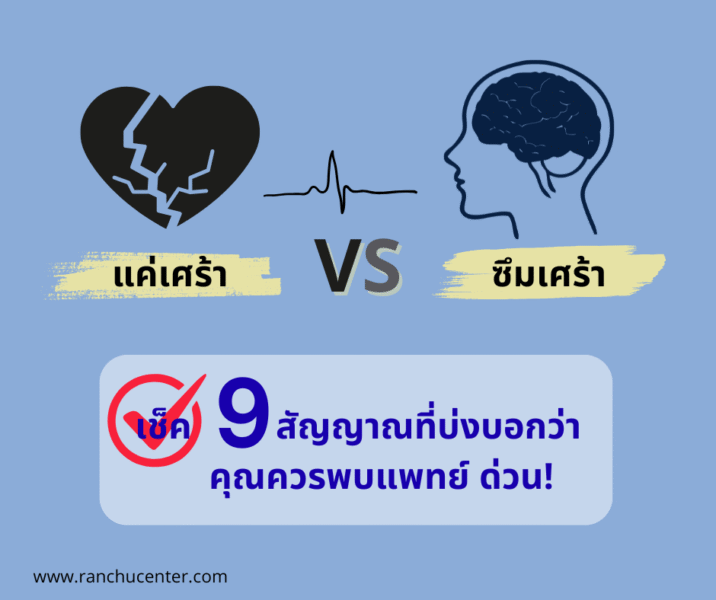Support for Depression: Understanding and Finding Help
เวลาอ่านโดยประมาณ: 8 นาที
Key Takeaways
- Support for depression can significantly improve mental health outcomes.
- Depression affects over 264 million people globally, highlighting the need for effective support and treatment.
- Understanding the symptoms and causes of depression is crucial for providing appropriate support.
- Coping strategies like mindfulness, exercise, and a healthy diet are important for managing depression.
- A strong support system, including friends, family, and mental health professionals, is essential for recovery.
- Various treatment options are available, including therapy, medications, and alternative treatments.
- Resources such as hotlines and support websites offer valuable assistance to those struggling with depression.
Table of contents
Support for depression is a multi-faceted approach that involves emotional, informational, and practical assistance for individuals experiencing depression. It is essential to understand that support for depression can significantly improve mental health outcomes. Those who receive support often feel less isolated, which can lead to a happier and healthier life.
According to the World Health Organization (WHO), over 264 million people worldwide are affected by depression. This staggering number underscores the global nature of depression and the urgent need for effective coping mechanisms and treatment options to help individuals manage their symptoms. Different strategies are available to individuals battling depression, all aimed at promoting better mental health and daily functioning.
Understanding Depression
To provide support for depression, it’s necessary to first understand what depression is. Depression is a common mental disorder characterized by persistent sadness, loss of interest or pleasure, and various emotional and physical problems. It not only affects mental well-being but also impacts physical health. Here are some common symptoms of depression:
– Fatigue: Constantly feeling tired or lacking energy.
– Difficulty Concentrating: Having trouble focusing on tasks or making decisions.
– Sleep Patterns: Experiencing changes in sleep, such as insomnia or oversleeping.
– Feelings of Hopelessness: An overwhelming sense of despair and pessimism.
Depression can arise from a variety of causes, including:
– Biological Factors: Genetics and chemical imbalances in the brain.
– Psychological Factors: Past trauma or negative thought patterns.
– Environmental Factors: Challenges in life, such as financial stress or the loss of a loved one.
The impact of depression extends into daily life, affecting work performance, personal relationships, and overall physical health. For example, according to the National Institute of Mental Health (NIMH), 19.7 million adults in the U.S. experienced at least one major depressive episode in 2017. This statistic highlights the extensive reach of depression and the importance of seeking support.
Coping Strategies
Coping with depression is an integral part of the support for depression process. Here are some practical strategies to help manage symptoms:
– Mindfulness Techniques: Engaging in practices like meditation and deep breathing exercises can reduce stress and improve emotional regulation. These techniques encourage individuals to reconnect with the present moment. [Learn mindfulness techniques here.](https://www.ranchucenter.com/วิธีลดความเครียด)
– Regular Exercise: Aim for at least 30 minutes of exercise most days. Exercise boosts endorphins, which can improve mood significantly, making physical activity an easy way to cope with depressive feelings.
– Healthy Diet: Eating a balanced diet rich in omega-3 fatty acids, whole grains, and an abundance of fruits and vegetables supports overall mental health. Food plays a crucial role in our emotional well-being.
Seeking social support is also vital. Encouraging readers to reach out to friends and family not only builds connections but also increases feelings of belonging. Participating in community activities can uplift spirits and provide a sense of purpose. For detailed community support options, check our resource section on community involvement [here.](https://www.ranchucenter.com/สุขภาพจิต)
Source:Learn mindfulness techniques here, here
Support Systems
Support for depression can take many forms, and having a strong support system is essential for recovery. Here are some available types of support:
– Friends and Family: Close relationships can provide emotional support and understanding. Simply knowing that someone cares and is willing to listen can alleviate feelings of loneliness.
– Support Groups: Both in-person and online support groups offer a sense of community and shared experiences. Connecting with others who understand what you’re going through can be incredibly validating. Check out these support groups.
– Mental Health Professionals: Therapists, counselors, and psychologists are trained to provide assistance and interventions tailored to individual needs. These professionals can offer invaluable support to those struggling with depression.
Having a solid support system leads to several benefits, such as decreased loneliness, improved coping skills, and better recovery outcomes. Strong connections foster resilience, encouraging individuals to seek treatment and maintain hope for a brighter future.
Source:these support groups
Treatment Options
When discussing support for depression, treatment options must be considered. Various approaches are available, including:
– Therapy Options: Cognitive Behavioral Therapy (CBT) focuses on changing negative thought patterns and behaviors. Other forms of talk therapy allow individuals to explore feelings and experiences in a safe environment. [Read about the benefits of CBT here.](https://www.ranchucenter.com/การบำบัด-CBT)
– Medications: Antidepressants can help rebalance chemicals in the brain. It’s essential to consult a mental health professional to find the right medication and dosage.
– Alternative Treatments: Alternative options such as acupuncture, yoga, and mindfulness-based practices are increasingly accepted in the mental health community. These treatments can complement traditional methods and provide additional support.
It’s important to find a treatment plan tailored to the individual’s needs. Consulting a mental health professional can ensure that strategies align with personal challenges and recovery goals.
Source:Read about the benefits of CBT here
Resources for Support
For individuals seeking support for depression, numerous resources are available:
– National Hotlines: The National Suicide Prevention Lifeline is a crucial resource, providing 24/7 support at 1-800-273-TALK. Speaking to someone immediately can make a big difference.
– Support Websites: Websites such as the Depression and Bipolar Support Alliance (DBSA) offer information and support group listings. Additionally, Mental Health America (MHA) provides valuable resources and screening tools.
– Local Support Groups: Community mental health centers often host support groups where people can find practical help and connection. These local resources can be invaluable for those in need. Visit [MHA resources here.](https://www.mhanational.org)
Accessing these resources can be a life-changing step for individuals struggling with depression.
Source:MHA resources here
Personal Stories of Overcoming Depression
Personal stories of individuals who have successfully overcome depression can inspire and motivate those in similar situations. Many have found their paths to recovery through therapy, medication, and community support.
For example, one person found that joining a local support group helped them express their feelings and connect with others facing challenges. Another individual credits therapy with helping them identify negative thought patterns and develop healthier coping mechanisms. Read more personal stories here
These examples illustrate the diverse paths toward recovery; support for depression plays a significant role in these journeys. Shared experiences often provide motivation, resilience, and a sense of belonging, proving that recovery is possible.
Source:Read more personal stories here
สรุป
In conclusion, seeking support for depression is crucial for healing and recovery. Help is available, and effective strategies exist for managing symptoms. Understanding depression, employing coping strategies, and utilizing support systems can lead to improved mental health outcomes.
Remember the resources and treatment options available to individuals battling depression. Taking the first step toward seeking help and support can make a significant difference. You do not have to suffer in silence—support can lead to healing and a brighter future.
































